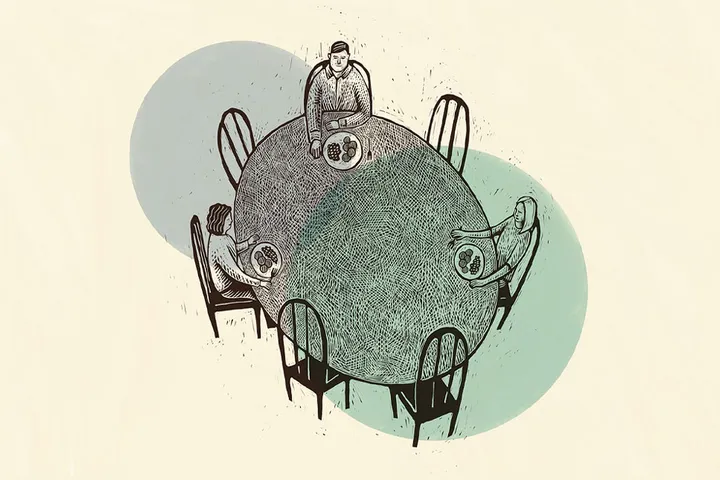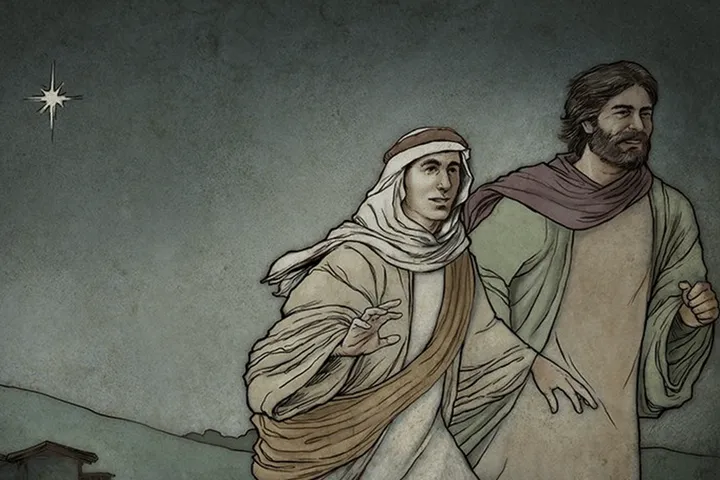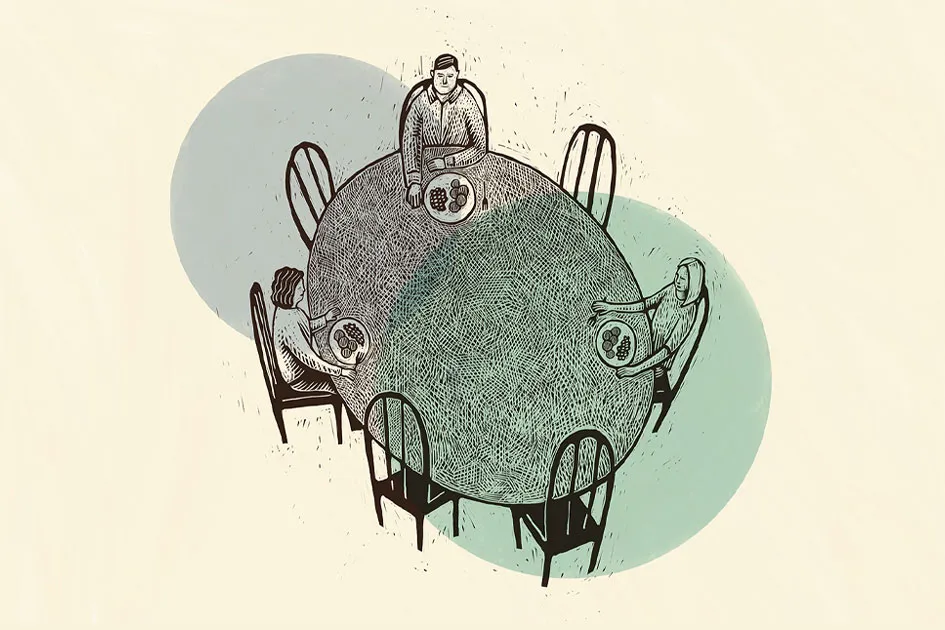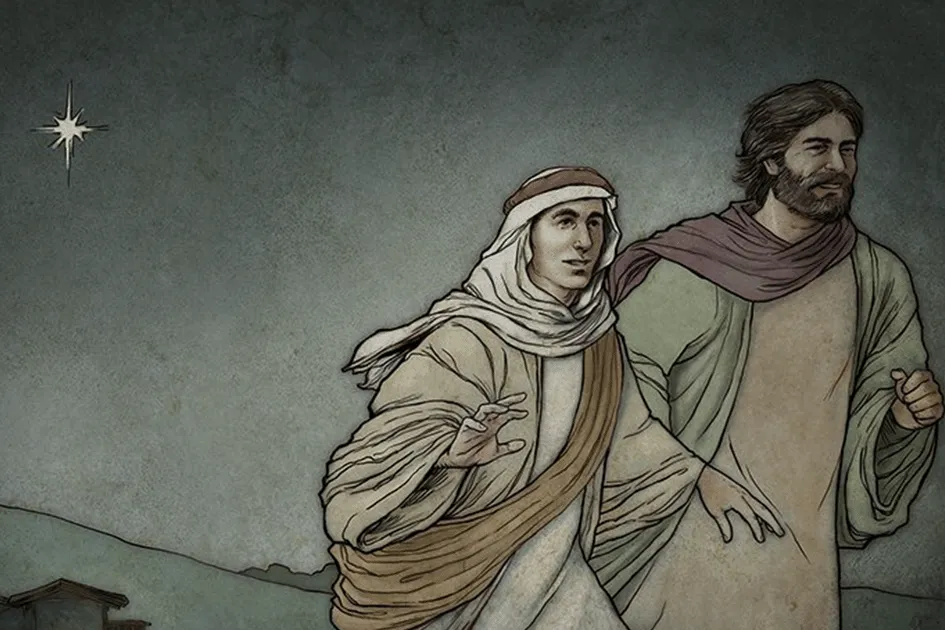Michelangelo’s famous statue of Moses is a powerful depiction of God’s servant: a figure of massive proportions and strong stone, carrying the wisdom of God beneath his arm, full of unflinching vigor. But how did he start out? As a baby set adrift in a river, a child raised away from his mother, and a conflicted young man. From a fractured life, God raised up a leader who united His people and freed them from slavery.
BACKGROUND
Despite living in bondage in Egypt, the Hebrew people are flourishing and multiplying rapidly. Pharaoh, afraid of their numbers and power, has ordered the killing of all male Hebrew babies to keep the population under control.
READ
Exodus 2:1-24
REFLECT
How has God healed your wounds—or matured you through them?
- Our earliest years are often considered meaningful to later development; those first experiences create initial impressions of this world and the people around us. Moses’ childhood story is told repeatedly in Scripture—in Exodus, in Acts 7:20-22 by Stephen, and in the “hall of faith” examples of Hebrews 11 (Heb. 11:23-26). As related in Exodus 2:2-6, Moses was born under threat of murder, then hidden and subsequently set adrift. How would you describe his early days? Unusual? Distressing? Unstable? List a few other adjectives.
- Found by an Egyptian princess, Moses “became her son” (v. 10). Ponder the implications for a child of Hebrew slaves. What conflicts might arise in that situation? Consider issues such as loyalty, forgiveness, gratitude, and honoring one’s parents (a godly virtue and one of the commandments Moses later received from God).
- Family and social relationships can shape values for better or worse. God wants us to be discerning about community: “One who walks with wise people will be wise, but a companion of fools will suffer harm” (Prov. 13:20). Yet we can’t always completely control our environment. What problems might Moses have faced as he grew to adulthood in a pagan palace? Is an unwanted influence making you struggle to maintain your integrity today? Explain how you could handle such a difficulty.
CONTINUING THE STORY
Faced with a choice, Moses stands with the Hebrews—God’s people and also his own—completely altering the course of his life.
- Stressful situations can prove our allegiance or surprise us with hidden emotion. Our reactions might be encouraging or disappointing, depending on our spiritual state. That’s why asking God to test our hearts, as David did, is a good practice but a challenging one. (See Ps. 139:23-24.) How do you see Moses’ reaction to the beating of a slave (Ex. 2:11-12)—honorable, dishonorable, or both? Why?
- Later, Moses’ interference prompts a hostile reaction from a Hebrew slave (vv. 13-14). What does the man’s anger reveal about the conflicts in Moses’ life?
- Moses flees to Midian, where he is again “a stranger in a foreign land” (v. 22). But God plans to use him to deliver the Hebrews, who “groaned because of the bondage” (v. 23). How might his experiences as an outsider have prepared him for future leadership?
REFLECT
God allows us to be tested in the Christian life—but there are rewards as we progress in the Lord.
- ·Your difficulties probably aren’t exactly like those of Moses, but in Christ, you too will have troubles. (See John 16:33; 1 Pet. 4:12.) Trauma and conflict can push you closer to God as you learn to love and serve others.
GOING FURTHER
Consider deeper aspects of this study.
When a block of marble cracks, the stone is weakened. That’s why fractures are undesirable in marble used for carving. But when the structure of our hearts is cracked or broken, God can use the experience to humble and refine us, therefore strengthening us for greater purpose. God’s people have often observed that pain and brokenness, while traumatic, are tools He uses to mature His children. One area where brokenness often occurs is in our human relationships. How can pain in community contribute to your growth in Christ?
- Time and distance separated Moses from his relatives. When he returned to lead Israel, he had to forge a new bond with his brother Aaron, whom God appointed to help. What obstacles are hindering your closest relationships? Pray for ways to overcome distance, schedules, or old hurts in order to improve connections.
- In Midian, though a stranger on the run, Moses aided a group of sisters. He was then accepted into their clan and married one of them (Ex. 2:15-22). Are you allowing a personal issue to stop you from helping others? Ask God to strengthen you in your valley so you can love better.
- No matter what fractures you find in your heart—or knots in the bonds you share with others—God can use all of it to show you His healing presence, draw you closer to Him, and strengthen your faith, love, and service. You are “His workmanship, created in Christ Jesus for good works” (Eph. 2:10). Trust His hands.






